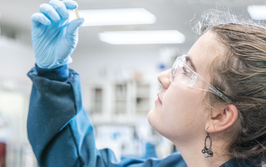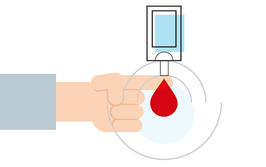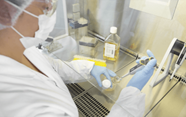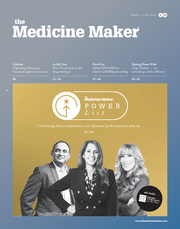Do AIs Dream of Electric R&D?
The technology around artificial intelligence is rapidly advancing – and it won’t be long before AI has a significant impact on pharma research and development.
Hui Cai |
It is an exciting time for the pharma industry, with a number of emerging technologies set to potentially have a positive impact. One technology that the industry is becoming particularly passionate about is artificial intelligence (AI), which could transform every dimension of drug development, clinical research, and medical treatment in the industry. As such, it is one of the chief topics at an upcoming global forum being held in January – in particular, speakers will examine what big data and AI could mean for the way we predict, diagnose, and treat disease (1).
A report on drug development by PhRMA saw the association acknowledge the fact that luck is a genuine element of R&D success (2). Reports of the costs of clinical trial failures vary, but it is often reported to be between $800 million and $1.4 billion. We need new technologies that can help address these costs. Even if AI only boosted the efficiency of drug development by a few percent, it could potentially save a significant amount of money.
Most experts agree that biotech and pharma companies are around a decade away from fully integrating AI into their R&D operations, since it’s one of the technologies expected to be so comprehensive and ubiquitous on a global scale that it will be difficult to compete without embracing it. Biotech and pharma companies have been slower than other industries at embracing AI, but they’ve recently begun to take notice of the possible applications, such as increasing the speed and success rate of clinical trials, such as by utilizing the data from preclinical, in vitro and in vivo studies to inform the Phase I trial.
AI may also be the missing piece in understanding genomics. With the genome sequencing revolution providing an unprecedented wealth of data that promises to transform our ability to diagnose, prevent and treat disease, the task now is how to mine that data so that it can be used to its full potential. Given that the sequence of just one genome is enough to fill the hard drive of a laptop computer, the reading of genomes is fast leading to an enormous data source. AI approaches are a natural solution for big data as they can “train” computers to recognize patterns and sift through the vast amounts of new and existing genomic and other biomedical data. AI also has the ability to potentially unravel the complex biological networks involved in disease processes, which will give scientists a more powerful starting point when developing therapeutics.
Despite the promise of AI, it will never replace research scientists, but I believe that a combination of human and machine intelligence will help streamline the discovery of relevant disease biology to improve the probability of drug development success. There are, however, other challenges to overcome with the application of AI in the industry. No medicine known to be linked to the use of AI has yet received regulatory approval, for example, but it’s likely that we’re not far off from that as uptake increases. As with any new technology, it will be a challenge for the regulators to adapt to new forms of data and evidence.
A second challenge will be knowing how to appropriately apply AI to problems. Like in other industries, there are situations where questions are too ambitious, too poorly constructed, or simply have insufficient data for AI to be effective; thus, those with domain expertise must implement the appropriate set of parameters to receive accurate predictions. Overcoming traditional R&D is also a hurdle, as predictions made by AI, based on signals too narrow or broad for humans to see, are not always interpretable. However, AI could be programmed to only generate human-interpretable results, but that may limit its potential.
You can probably tell that I am passionate about the potential of AI and I look forward to further discussions in January 2018. However we proceed, I think it will be important to learn more about the technology and to not use AI naively, without high-quality data – and assume that it will solve everything. If we want to get the most out of AI, we need to adapt to the way the incoming technology operates.
- WuXi Global Forum 2018; Janaury 9, 2018; San Francisco, USA.
- PhRMA, “Biopharmaceutical research & development: the process behind new medicines”, (2015). Available at: onphr.ma/2pId1mb. Last accessed: December 14, 2017.
Hui Cai is Forum Chair, WuXi Global Forum.


















